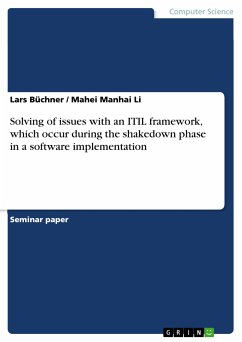Seminar paper from the year 2004 in the subject Computer Science - Commercial Information Technology, grade: 2 (B), University of Mannheim (Information Systems), course: Industrialization of Software Development, language: English, abstract: Topic of this paper are the macro economic issues of offshore outsourcing. First inland and offshore outsourcing are described, especially focused on IT outsourcing. Then reasons for IT offshore outsourcing are illustrated. Popular offshore markets are introduced and the advantages are shown. In the next chapter, problems and risks of offshore outsourcing are explained. Both the more general view and IT specific problems and risks are described. Here general problems as well as problems of IT outsourcing are mentioned. Then consequences of the offshoring trend are illustrated. Apart from consequences for IT branch, especially consequences for national economies of western countries, e.g. Germany, are viewed in detail. There can be short term and long term consequences. Future offshore outsourcing trends help to understand the effects. The development of unemployment caused by offshoring is one main focus. Furthermore offshoring trends in other white collar work besides IT are shortly described. At the end this the paper develops an idea about possible solutions for western countries. Potential reactions of the government and suggestions on how to create new jobs are presented in detail. The paper finally ends with a small conclusion.









